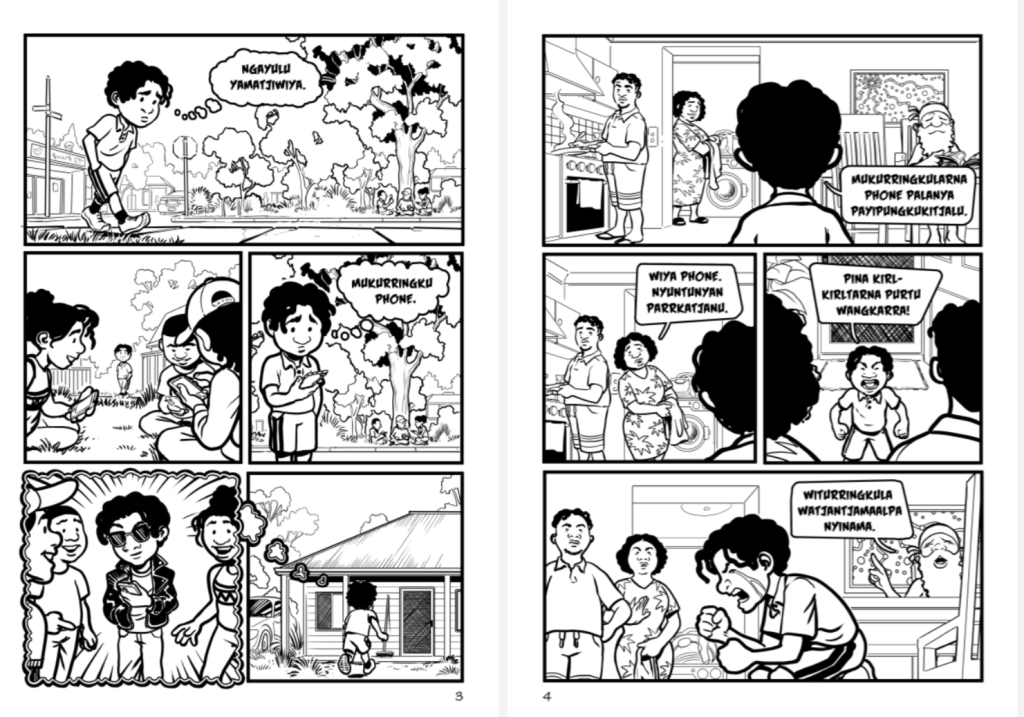Mr. Nintipayi Comic 1: Walykumunu Mr. Nintipayi
Mr. Nintipayi Comic 1 : Walykumunu Mr.Nintipayi
Wow, how exciting – the first Ngaanyatjarra language comic by Mr. Nintipayi is now available!
To download a free copy, click here.
Hard copies of the comic are available from the Goldfields Aboriginal Language Centre for free.
Blurb
What would you do if you wanted a mobile phone and your parents said you are too young for one? Mr. Nintipayi’s grandson badly wants a phone because he thinks it will make him into a ‘cool kid.’
In fact, he is prepared to keep a mean secret to get what he wants.
Find out what happens next in this fun adventure comic in the Ngaanyatjarra language!
Once you’ve read your comic, you can colour it in and make it your own artwork.
Here’s a look inside the comic.

Audios for the comic’s scripts coming soon!
